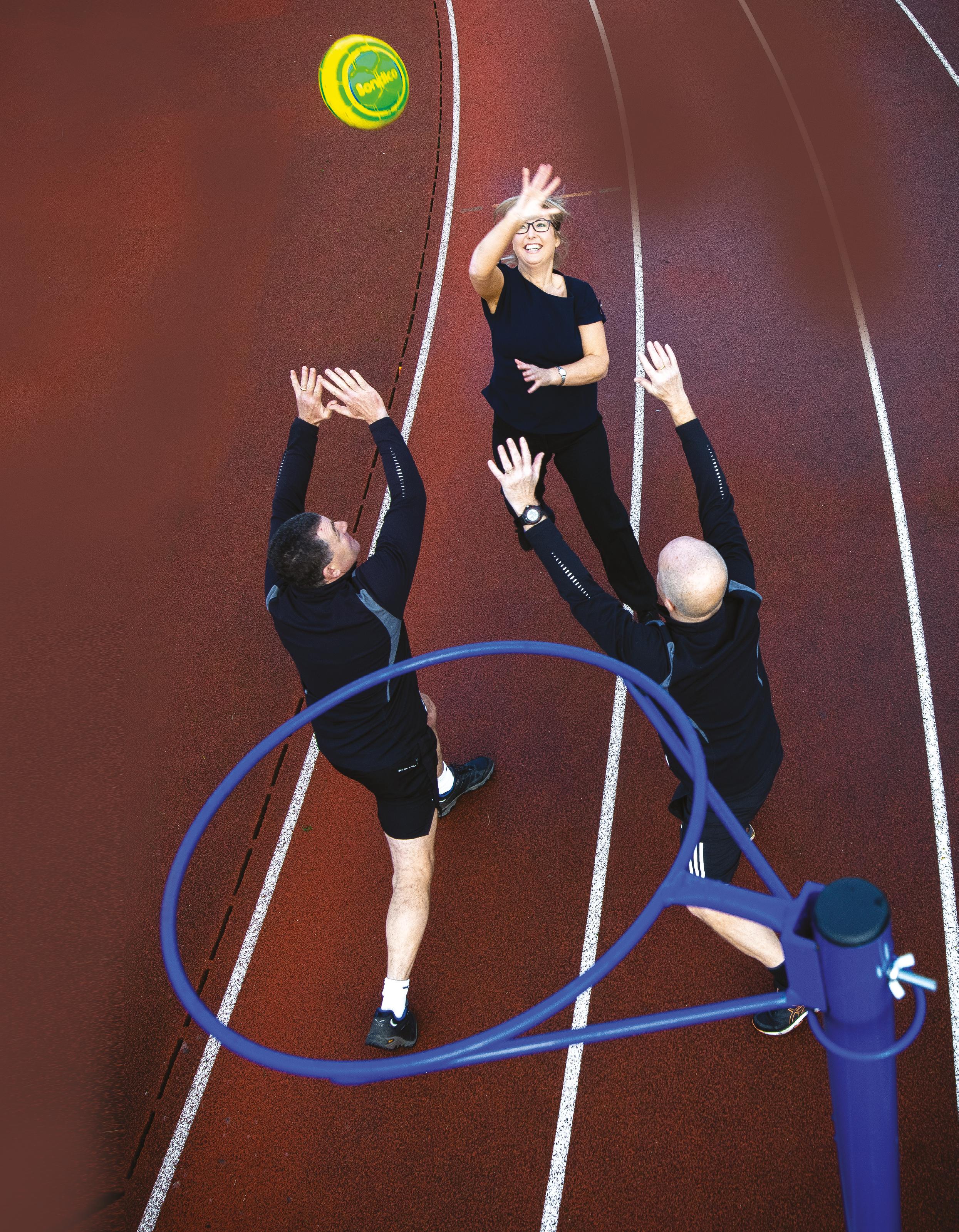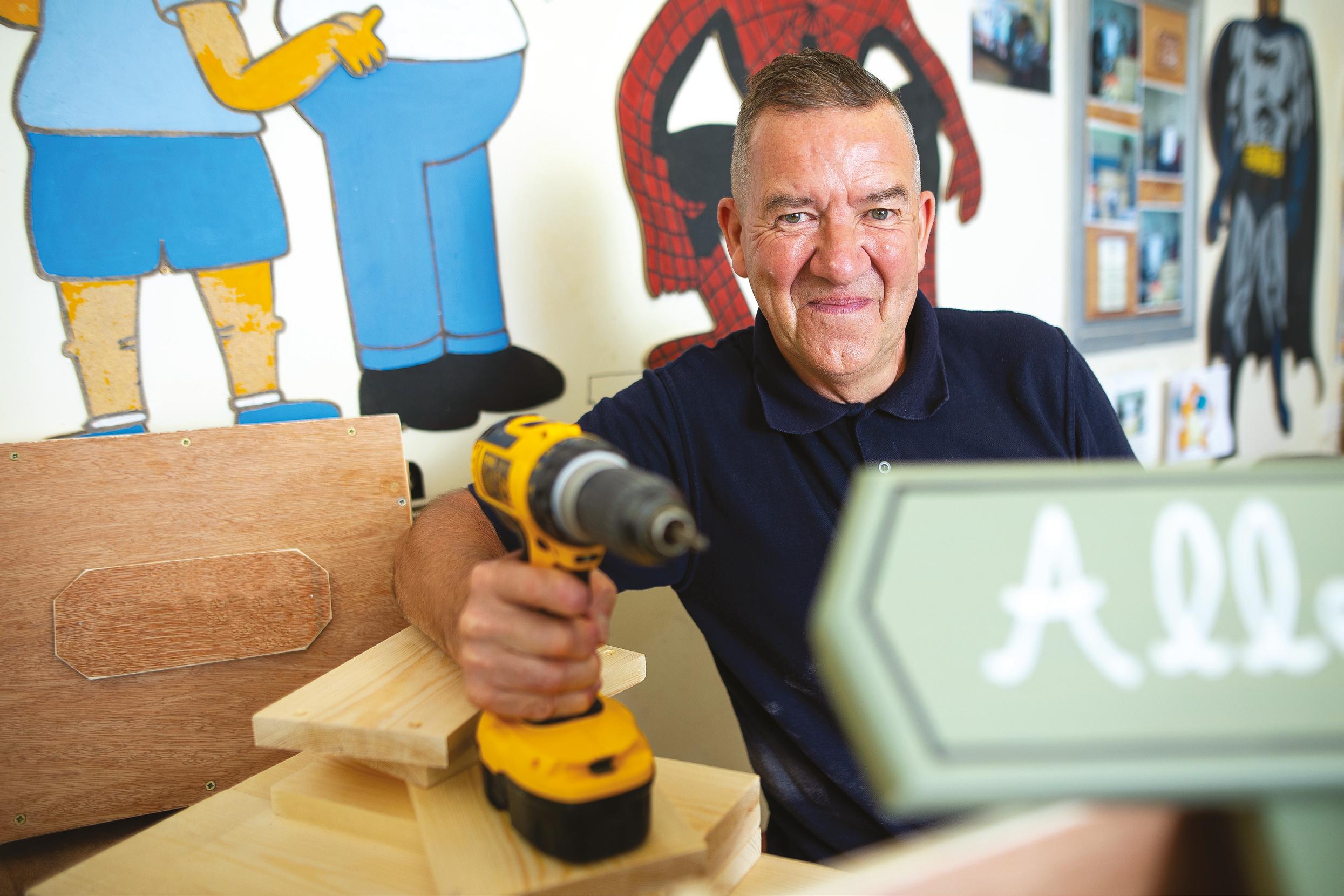
3 minute read
ON THE MOVE
Nurse Barry Sims recalls the day he met the mother of Ben, a 25 year old patient in Ashworth High Secure Hospital. Her son was making great progress with his psychological therapies, but he was struggling with massive weight gain since being admitted.
She grabbed my hand and said ’you’ve saved my son’, but look at his body’. I felt her pain. Almost all our patients have experienced unthinkable trauma in their lives, they are often mistrustful of anyone trying to help them. Mental health medications and sedentary lifestyles because of restrictions can lead to lethargy and inevitably weight gain and health conditions like diabetes. It can be a huge barrier to their recovery and moving on.”
Barry, a strong advocate of exercise for health, retired and not long after, took up a role as a personal trainer. He remained frustrated at not discovering the key to helping men like Ben.
“Mersey Care does a fantastic job in providing a benchmark service for some of the most unwell men in the country. This was the missing piece in the jigsaw of care, to get someone well enough physically as well as mentally, so they start to sense normality and hope, often for the first time in their lives.”
Senior nurse Sarah Pilling shared Barry’s vision but knew there would be challenges: “These are people with complex backgrounds, they don’t easily engage with staff. They’ve been let down in their lives so they don’t trust that it won’t happen again. We knew if
She brought together a team including mental health nurses and nursing assistants. Then she made the call to Barry Sims and fellow technical instructor Mark Wiggans to come out of retirement and use their skills to get the programme up and running.
we started a programme we’d have to make sure it happened they way we said it would."
She has the utmost praise for the team who underwent motivational skills training beforehand. “They’re so adept at what they do and totally dedicated. They’ve never cancelled a session, even if it’s just for one person, because they know how important it is to that patient.
They included patients like Ted who was diabetic and worried. By working with the team he lost 34kg and no longer has diabetes.
The team would knock on bedroom doors of the men taking part, and gently encourage. First it was pool games or a walk in the garden, acclimatising patients to being away from their ward.
The results were dramatic. Other patients, seeing their peers going off the ward to do exercise, asked to get involved. On one ward 80 percent of patients took part. Weight was lost and confidence gained.

Barry Sims, Mark Wiggans and Sarah Pilling are seeing positive results in patients on the physical activity programme.
“We had to be creative with activities to be inclusive” said Sarah. The majority of participants were overweight. They’re struggling with their mental health. It was as much about creating a sense of belonging and building a rapport so we could start talking about a plan for the future.”
Mark Wiggans says support from other departments has been key to the programme’s success. “They supported us all the way and now they see the difference in patients on the wards. People are calmer and more relaxed.”
The training has been extended to students. “When we show our student nurses techniques to motivate patients, they’re amazed, they’re learning early.” says Mark.
For Barry the reward is watching people improve, physically and mentally. “We may have nursed someone when they were very vulnerable, now we’re playing football with them and helping them plan the next part of their journey. “
Photographs taken before current restrictions. The PAW programme is currently paused.










